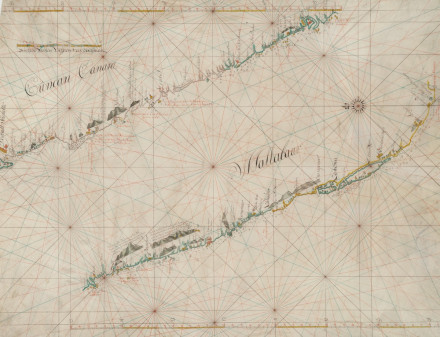History
After arrival in August 1642 from its fourth retour voyage, The Maastricht remained in Indian waters. After a number of retour trips, a retourship was no longer considered strong enough in terms of construction and was given a second life on the less stressful routes in the intra-Asian network. The Route to Malabar via Ceylon was a common alternative to 'written-off' Retour ships.

The West coast of India on a 17th century map.
The Maastricht was on its way from the west coast of India via Gale (Ceylon departure from there on 10-5-1651) to Batavia. The sailing on that route, if undertaken in the right mousson period, was usually trouble-free. However, the Maastricht came in a heavy storm off the west coast of Sumatra. She sank at 1 1/4 degrees north of the line.
The people were saved by the Snoek that sailed together with the Maastricht. A small amount of gold could also be taken over, but the pepper charge was lost.
Description
Built: Yard in Rotterdam, 1634
Tonnage: 300 last